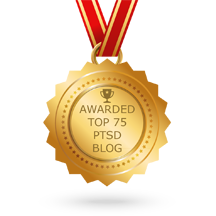Wondering How to Sane as Well as Safe During COVID? (approx. 6-7 minute read)
/It’s been a full year since the first case of COVID-19 was reported and I thought this would be a good time to check in to see how you’re all doing. It’s been a difficult year, to say the least, and I’m wondering what kind of self-care you’ve been doing to keep yourself sane, as well as safe.
When COVID first reared its ugly head, everyone worldwide was told to maintain a 6 foot, or 2 metre distance in order to keep others safe. It was hard, but not as hard as when we were told we had to wear masks and stay away from family and friends. Humans need contact, physical contact.
Dacher Keltner, the founding director of the Greater Good Science Center and a professor of psychology at the University of California, Berkeley has done a lot of research, and he says that the social functions of touch do so much for humans.
The social functions of touch do things like reinforce reciprocity, soothe us, provide feelings of reward, and tell us that we’re safe. These functions are really important especially when it comes to soothing because a simple touch from another human can release oxytocin; “the love hormone.” Soothing or comforting someone can also help reduce their cardiovascular stress, promote feelings of compassion, happiness, gratitude, and love, and it’s all done by activating the vagus nerve.
I don’t know about you, but I didn’t know much about the vagus nerve other than what I learned in college, and I found some really interesting information while writing this article. For instance, our vagus nerve extends from our brainstem, down through our neck and thorax, and into our abdomen. It not only promotes altruism and selflessness, but it also helps with things like swallowing, vocalization, slowing our heart rate, and aiding with our digestion. LiveScience states that the vagus nerve is the largest nerve and:
“By wandering and branching throughout the body, the vagus nerve provides the primary control for the nervous system's parasympathetic division: the rest-and-digest counterpoint to the sympathetic nervous system's fight-or-flight response. When the body is not under stress, the vagus nerve sends commands that slow heart and breathing rates and increase digestion. In times of stress, control shifts to the sympathetic system, which produces the opposite effect.”
So, as you can see, activating our vagus nerve is extremely important for people like us because it can reduce depression, calm our fight, or flight response, and it can help us to recognize and feel love. All these things help with our mental health and I want to make sure that you’re doing whatever you can to help yourself get through the COVID pandemic.
Unfortunately, there is nothing that can actually replace human touch, so if you’re alone during this pandemic, you’re going to have to work extra hard to make sure you produce the chemicals your body needs to stay happy and be in a positive state. The good news is there are three other chemicals that help you to be happy and stay in a positive state, and they are: endorphins, dopamine, and serotonin. Dopamine is a motivator and helps you to achieve goals and get things done and it’s a chemical you can produce without touch. Personally, I have found the best way to ensure that I have a consistent pattern for experiencing dopamine, is to create new goals, especially before achieving one; that way you will rarely experience a low. Another way to create dopamine is to make sure that you celebrate your accomplishments and you can do that by heading to your favourite restaurant and get some take-out, buy yourself a bottle of wine, or just do something that warms your heart.
Serotonin is very important to your brain because when you don’t have enough, you tend to feel lonely or depressed and you may seek out unhealthy behaviours in order to facilitate serotonin release. Some people take anti-depressants to help them with serotonin production, but you can also do things to help yourself. One of those things is to keep a gratitude journal so that you can remind yourself of what you do have, instead of focusing on what you don’t have. Another thing I do is getting outside for at least twenty minutes each day because it helps my body to produce serotonin and Vitamin D, and it always helps me to get my mind out of the proverbial rabbit hole; even if all I do is open the front door and look up at the sky.
The last neurotransmitter of the three I mentioned that help with our happiness, are endorphins and they can also be produced without human touch. Endorphins help to alleviate anxiety and stress, and they can act as a sedative or analgesic, by diminishing our perception of pain. The good thing about endorphins is they are produced by exercising, eating spicy foods and dark chocolate as well as using aromatherapies, such as lavender and vanilla.
The best thing about endorphins is that they can also be produced by laughter and/or having a good sense of humour. So, make sure to watch lots of comedies, play practical jokes (nice ones) on loved ones, or just be self-deprecating, and joke about your quirks.
Something else we need to do during this pandemic is make sure we keep our immune systems strong because wearing masks and washing our hands; twenty or more times a day, is doing nothing for our immune systems. I’ve read articles this past year that disagree with that hypothesis, and I’m sure you have too, so I’m going to quote from an article written by U.S. News before COVID:
“Exposure to microbes is an essential part of being human. Most of our immune system is comprised of tissue that requires activation by the microbes we’re exposed to. The immune system requires the presence of friendly bacteria to regulate its functions. Think of the immune system as an army, with tanks and missiles but no general to lead them. That’s the role friendly microbes play in your body; they’re the general.” The vast majority of microbes, 97% to 99%, are benign or beneficial, and they are the best protection to fight pathogenic microorganisms, Krishnan says.”
Based on that quote by, Krishnan, I’m going to give you some ideas on how to keep your microbiome healthy. First of all, if you don’t have a pet, get one because there’s research that claims early exposure to all animals, can reduce the risk of your children getting asthma. Reduce your use of antibacterial soaps and chlorine-based cleaners so that you are living in a home that has a healthy microbial environment, instead of one that is sterile. Play in the dirt. You can start an herb garden inside right now and then when the weather gets warm again, get outside and grow your own veggies. Not only is it healthy for your microbiome, but it’s also healthier for you because you’re eating more fresh whole foods.
Last but not least, make sure to spend time with your circle of ten, or however many your city is permitting. You don’t have to hug and kiss them; unless you want to but having close interactions with your family; or chosen family, is really important. Not just for our immune systems or microbiome but spending time with other humans helps with our psyche, and our mental health as well.
Stay safe and stay strong. Thanks for following, and please make sure you’re taking care of you.
Links and References:
https://www.livescience.com/first-case-coronavirus-found.html
https://greatergood.berkeley.edu/article/item/hands_on_research

